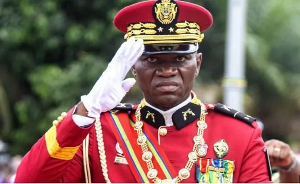Otumfuo Osei Tutu, II has revealed to the New African Magazine “I have never been a politician and don’t want to be one.”
The Asantehene made this statement, part in reaction to a question about suggestions by ex-President John Kufuor that there should be a change in the term limit for the Ghanaian presidency.
In his last address to Parliament on January 5, 2009, he advocated two five-year terms, instead of two four-year terms.
In answer to the above, the Asantehene said: “He [Kufuor], being an experienced politician, must know what he is talking about; I have never been a politician and don’t want to be one. But we come back to the earlier point – that whether it is five years or four years, the politicians would still say it is not enough. Most of them would want to change whatever term limit you give them to continue in power. So where do we draw the line? The people should decide in the context of the peculiar circumstances of their country.”
He was also asked: “In that case, why can’t we go back to our roots? For example, you have been in power for 10 years already, as Asantehene. There is no time limit for you; the position of Asantehene is for life, if you are a good king you stay for life, if not, the people have a way of getting rid of you. So why can’t we go back to what our ancestors bequeathed to us?”
The Asantehene’s answer: “From experience, if you gave the politicians no time limits, they would misuse it, and absolute power corrupts. We have seen it in Africa. So we have to be careful not to confuse going back to what our ancestors bequeathed to us in the traditional system of governance with the modern-day political system of administration.
The appropriate thing to do is have the two systems supporting each other as happened in Ghana. What needs to be done is the strengthening of independent governance institutions like (as in Ghana) the Commission on Human Rights and Administrative Justice (CHRAJ), the National Commission for Civic Education (NCCE) and the Legislature to put in the necessary checks and balances on the Executive, and educate the people. That, I believe, will go a long way to enhancing democracy.”
The editor of the New African magazine, Baffour Ankomah, who conducted the interview, then asked the Otumfuo, “let’s take your own position as Asantehene, for example. If you people don’t like you, what are the avenues of redress open to them?”
“We have checks and balances. We have advisors or elders who sit in court with the chiefs; this is our equivalent of the Western-style cabinet. And then you have the Queen mother who is the chief advisor sitting behind you.
”In Asante, if the elders advise the chief and he doesn’t listen, they have the right to report him to a higher authority – the Asanteman Council and we (the King is head of the Council) actually take over the matter.
“If the people realize that the chief is flouting the oath of allegiance that he swore to them, they will destool (or overthrow) him through the laid-down judicial process, so that he can’t become autocratic. They will let him know that he is ruling for the people, he is there for them; so the people are supreme. They won’t sit down and watch as the chief takes the law into his own hands. So we have checks and balances here.”
General News of Friday, 17 April 2009
Source: Daily Dispatch
















